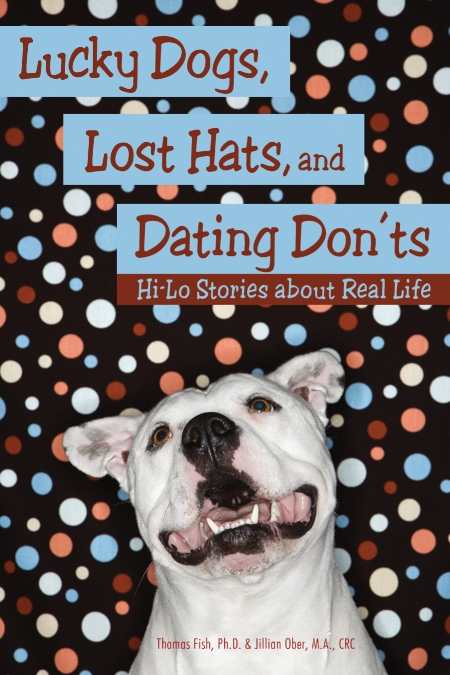Lucky Dogs, Lost Hats, and Dating Don'ts
Hi-Lo Stories about Real Life
Once you learn to read, you will be forever free.
— Frederick Douglass
The freedom to read is shared by millions the world over. Nothing excites the mind, stimulates the senses, or charges the spirit like a favorite book. But what if reading was a struggle for you? How then would you share in that freedom that Frederick Douglass speaks of?
Lucky Dogs, Lost Hats, and Dating Don’ts: Hi-Lo Stories about Real Life provides an answer. The Hi-Lo reading movement is for “reluctant” readers that don’t read on grade level or who aren’t interested by the books available at their reading level. These readers typically have a high intest in reading accompanied by a low skill level. Whether the reader is an adult who struggles to read, or a teen with “intellectual and developmental disabilities” (IDD), Lucky Dogs is an enjoyable, non-threatening series of stories that will captivate, provoke thought, and enable discussion.
From a young woman with IDD who is convinced that her bad hair day will get her in trouble with her boss to a young man who really wants to a girlfriend, and finds activities (like volunteering or dancing) that help him to meet people, the stories involve real people with issues. Charming black-and-white photographs are sprinkled throughout and provide a nice visual break from the text. My favorite was the story of Kasey, a young nurse, who wants to buy a dog. Kasey’s grandfather worries that she will be too busy to properly take on the responsibility of pet ownership. But he remembers his own dog, Tucker, and the joy they shared. Kasey decides to honor her grandfather by naming her new dog Tucker. And I had to laugh at tale of two roommates—one neat, and one messy—who have to learn to live with each other. Their solution to the dirty dishes, working together and doing the others’ dishes for them, conveys the importance of collaborating in order to create a cozy and welcoming home. Each of the fourteen stories end with a series of questions to foster discussion or journal writing.
Dr. Tom Fish directs programs on community inclusion, adult literacy, autism, and sibling support as the Director of Social Work at Ohio State University’s Nisonger Center on Disabilities. Jillian Ober’s association with the center began in 2004. She manages programs emphasizing lifelong learning for people with IDD, including the Next Chapter Book Club (NCBC), offering people with wide-ranging abilities the opportunity to read, learn, and socialize. NCBC provided much of the real-life framework for this book.
While Lucky Dogs is written on a first- to third-grade reading level, the stories are ageless and deal with issues that are relatable. Now, reluctant readers don’t have to feel they are being “talked down” to and can experience the freedom, and magic, of reading.
Reviewed by
Julie Harthill Clayton
Disclosure: This article is not an endorsement, but a review. The publisher of this book provided free copies of the book and paid a small fee to have their book reviewed by a professional reviewer. Foreword Reviews and Clarion Reviews make no guarantee that the publisher will receive a positive review. Foreword Magazine, Inc. is disclosing this in accordance with the Federal Trade Commission’s 16 CFR, Part 255.

